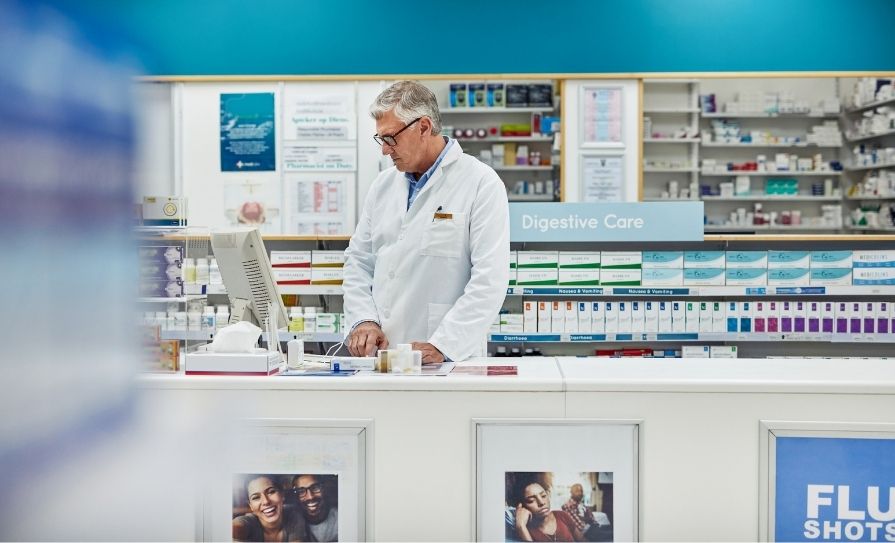Lessons need to be learned from the media hysteria created by some tragic child deaths in the UK and the Pharmacy Network also could have done better, writes Terry Maguire
The death of a child from an infectious disease is shocking and heartbreaking in equal measure. It’s thankfully so rare nowadays that when it occurs, and the event is local, it understandably causes concern.
In early December, BBC reported the tragic death of a five-year old girl following a spike in Strep A infection locally linked with other child deaths across the UK (there have been an estimated 24 deaths to date). These were stark headlines and the public went straight to panic mode. The media reporting was sustained and sensational in the extreme, calling for another lockdown or at least school closures. The pressure on out-of-hours GP services over that weekend of 3 December was unmanageably intense and by Tuesday, GPs surgeries were still inundated with calls from concerned parents seeking help, and most pharmacies were out of relevant antibiotics. The Belfast Hospital for Sick Children was forced to stop all planned surgeries and appointments as parents of over 200 children arrived seeking attention. It was a huge problem for a health service already under immense pressure.
I do not underestimated the risk to life caused by a spike in Strep A infection, but I do wonder how an infection we know very well and can treat effectively should suddenly become a major public health crisis. Once the public panicked, our ability to manage the surge in a calm, disciplined and dispassionate way disappeared and it became crisis management, with all its attendant risks and inefficiencies.
Central to this crisis was not Strep A but the media, and I think we need to learn lessons from what occurred and ensure it doesn’t happen this way again. I am concerned that, on too many occasions and especially when it comes to health, sensationalism can get the better of editors and news-desk producers so that they chase the story with exaggerated statements, and they ignore the damage they are inflicting on the health service.
Strep A infection occurs regularly and we had a spike in infections in 2017-2018, which across the UK saw over 300 deaths, mostly in older people. We always need to be vigilant, and suspected cases should be treated as soon as possible with appropriate antibiotics, mainly Penicillin V, but others antibiotics are effective, including clarithromycin and amoxicillin.
Public health experts are concerned that with the strict lockdowns during the pandemic, there is now an ‘immunity debt’ in the population, which means more children will get more viral and bacterial infections this winter and a very small number will get Strep A infections; strep throat, scarlet fever and the very rare but potentially fatal invasive Gram A Strep (iGAS). In iGAS, the streptococcus enters the systemic circulation and if not treated, can be fatal. So it’s important to identify those with the bacterium, for example those with a red sandpaper-like rash on the body, sore throat, and raised temperature — the classic symptoms of scarlet fever.
In response to the panic, the Public Health Agency gave out clear and essential information in a timely fashion on how to spot these signs and symptoms, and what action to take. There was no need to close down schools, but that seemed insufficient to many interviewers and reporters. Once the panic set in, every child with a runny nose, raised temperature or feeling out of sorts became a potential death about to happen and yes, I get that, I know how scary that is, but I know it didn’t have to be that way.
The Pharmacy Network dispensed one month’s supply of liquid antibiotics in a few days and given the number of true infections, this was hard to justify. As the panic progressed, GPs were told to have a high degree of suspicion with any cases presented and if in doubt, prescribe. It was not a good policy. Years of antibiotic stewardship had been squandered and this prescribing has a real potential to create Strep A bacterial resistance that could lead to more than expected deaths in the future. But what else could we do?
In 2019, I assessed the possible use of a pharmacy Test and Treat Service for Strep A. It was published in the Pharmaceutical Journal in 2020 and our results were supported by a similar, larger service development study in Wales, which is now commissioned under the Pharmacy First Service for the Welsh population. In our service, 92 patients presented in the pharmacy with symptoms, were assessed using a Centor scale (FeverPAIN) commonly used in A&Es to establish if the sore throat is most likely a virus or a bacterium. Where the score is high, a bacterial infection is more likely and then the bacterium’s presence is confirmed by a simple and inexpensive throat swab test. Of the 92 who presented, 30 were swabbed and 14 had a positive result, and all of the 14 were prescribed penicillin V in the pharmacy under a Patient Group Direction without the need to visit the GP. The others were given reassurance and simple analgesics. In the Welsh service, some 2,000 presented and only 149 warranted swabs, with 36 found to be Strep A positive and all were treated in the pharmacy with Penicillin V. This service is designed to support the Antibiotic Stewardship policy and clearly reduces the inappropriate prescribing of antibiotics by 90 per cent and does not add additional costs, as the GPs were not involved. Sadly, in spite of these results, our health service in N Ireland did not commission the service. If we had, then we could have calmed the panic.
Sadly, community pharmacy’s role in the panic was merely to complain that we did not have stocks of antibiotics
and, where we did, it was at a price the health service would not pay, potentially threatening our businesses. And the most disappointing thing for me was that few of us who were featured on the BBC realised how tragic and pathetic this public message was. After 20 years of government saying community pharmacy should be the first port of call for common aliments, we sounded like local grocers.
Perhaps when the panic dies down there can be calm discussions on whether or not it would be appropriate to commission this service as part of our transformed health service.
In the meantime, I would respectfully ask the local media to think about
how their reporting in the first week of December 2022 might have exacerbated and disrupted the routine and well established management of an infection and turned it into a crisis where the system nearly lost control.
Terry Maguire owns two pharmacies in Belfast. He is an honorary senior lecturer at the School of Pharmacy, Queen’s University Belfast. His research interests include the contribution of community pharmacy to improving public health.







